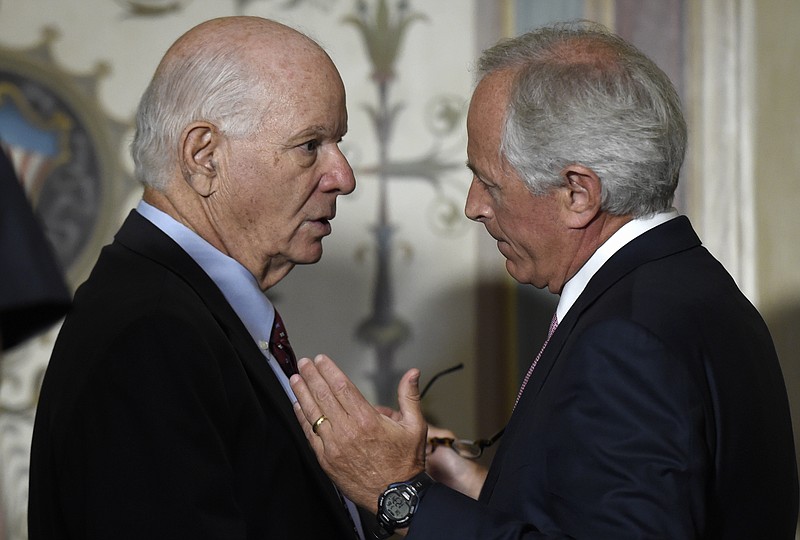When it comes to an agreement that limits the ability of Iran to build nuclear weapons, U.S. President Barack Obama is the king of false choices.
The president, in trying to sell the deal negotiated over three years to the United States Congress and the American people, says it's his deal or war. And he said Sunday that Israeli Prime Minister Benjamin Netanyahu hasn't offered an alternative to the deal.
Both are false, and Obama knows it.
Sanctions by the U.S. and other countries were gradually tightening the noose on the Iranian economy before the agreement was completed. War was never on the table. Indeed, the nation's top military general has admitted that the possibility of war was never discussed.
Obama also is well aware that Netanyahu's alternative to the negotiated deal is one that would not allow Iran to build nuclear weapons. It's not a matter of an alternative that changes a few words in a clause here or emphasizes a different paragraph there.
Israel's stance, after all, is the same one the U.S. started with - that the Middle East's largest sponsor of terror would not be able to build nuclear weapons.
Tennessee Sen. Bob Corker, chairman of the Senate Foreign Relations Committee, said as much in the weekly Republican address Saturday.
"It was a goal (ending the country's nuclear program) that both Republicans and Democrats rallied behind, and still do today," he said. "That's why there is bipartisan concern with the deal that has been presented. Rather than 'end' Iran's nuclear program, this deal allows them to industrial it over time - with our approval."
Members of Congress, now back in their districts on their summer break, are hearing from constituents their displeasure with the deal. Whether they choose to believe the people or save the president's bacon is another thing.
Recent polling indicates nearly six in 10 Americans oppose the deal, though, with all polls, it depends on how the issue is framed. Millennials, a voting bloc that helped put Obama in the White House in 2008, oppose the deal by a 4-to-1 margin, and American Jews are against it by a 2-to-1 margin.
Another poll released Monday indicated just 14 percent of those surveyed believe the U.S. came out on top in the negotiations.
Whether or not the polls had any influence, New York Sen. Charles Schumer, the next Democratic minority leader, a representative of a large Jewish constituency and a Jew himself, and several other Democrats have announced their opposition to the deal.
"I believe Iran won't change," he said, "and under this agreement it will be able to achieve its dual goals of eliminating sanctions while ultimately retaining its nuclear and non-nuclear power."
Whether or not the administration feels it has enough votes to "allow" the congressmen to oppose the deal, as is often done, and still get its way on the agreement is not known.
Iran, for its part, knows which country got the best of the deal. After all, its stream of hate against the U.S. continued before, during and after the negotiations. The "Death To America" mantra from Iranian hardliners, with whom Obama said those who haven't supported his deal have "common cause," has not ceased.
Plus a recent tweet from Ayatollah Ali Khamenei, the country's supreme leader, offered a shadow image of Obama holding a gun to his own head and the words: "We welcome no war, nor do we initiate any war, but if any war happens, the one who will emerge the loser will be the aggressive and criminal U.S."
When Congress returns in September, it will vote to approve, disapprove or do nothing about the Iran agreement, which Congress learned after the fact has secret side deals to which it is not privy. A vote of disapproval won't halt the deal, but it could block the U.S. from lifting some of the toughest sanctions against sectors of Iran's economy.
A vote of disapproval by Congress most assuredly will be vetoed by Obama, whose administration members negotiated away red line after red line the president said the deal could not cross. It then would return to Congress, where it would need a two-thirds majority of both houses to overturn it.
That's why it's so important for members of the House and Senate to listen to their constituents during the summer recess and vote what they are hearing.
If they've been paying any attention at all, they already have rejected the president's false choice of deal or war, and do not desire an agreement that gives a terrorist nation not only a path to nuclear weapons but the freed-up sanctions to implement such a program and more.
